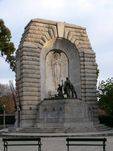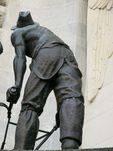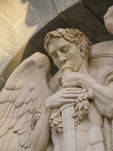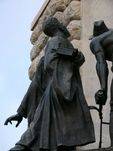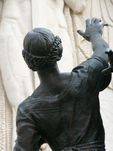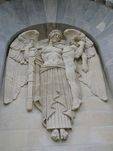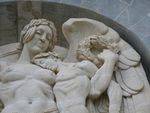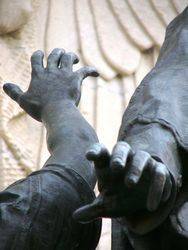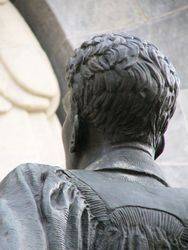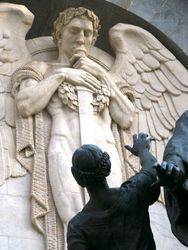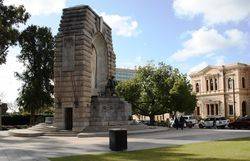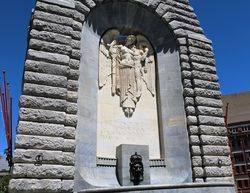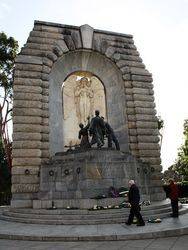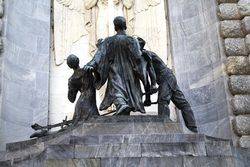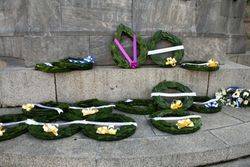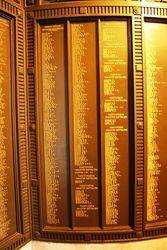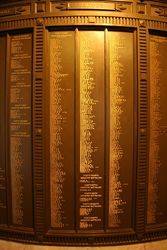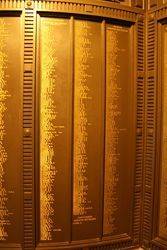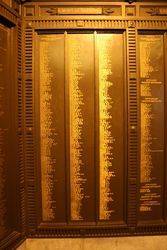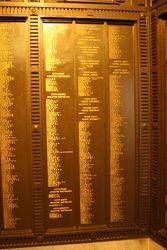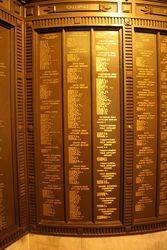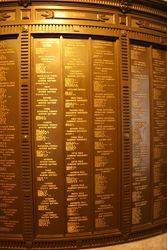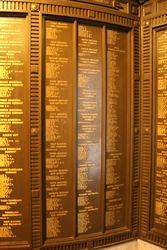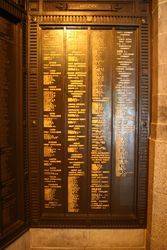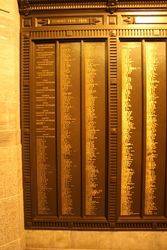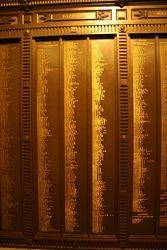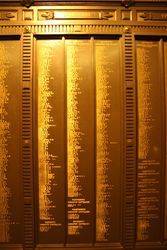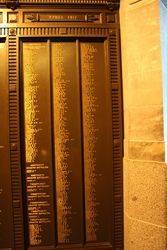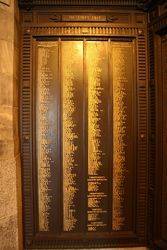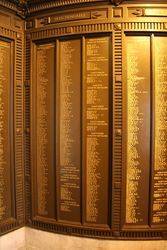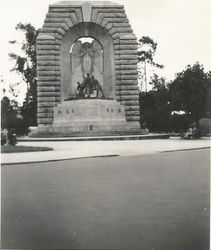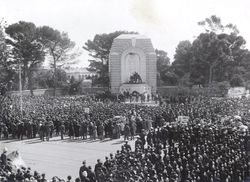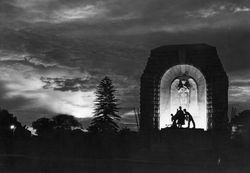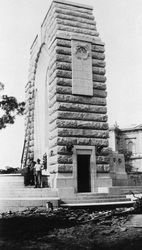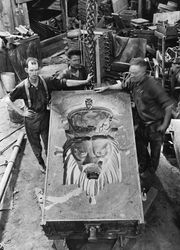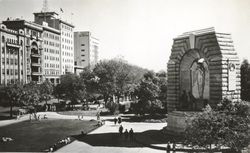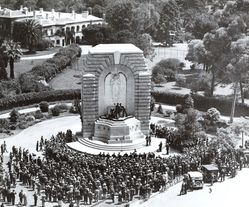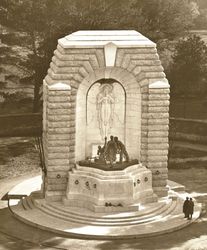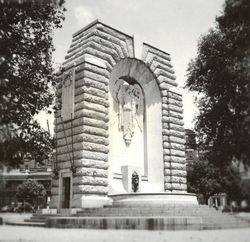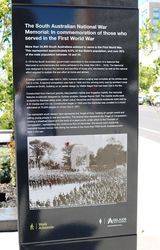
Home » Themes » Conflict » World War One
National Soldiers MemorialPrint Page 
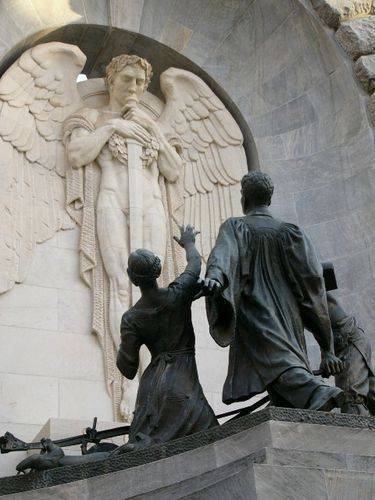
The National Soldiers` Memorial commemorates South Australian sailors and soldiers who died in service or were killed in action in World War One.
In 1919, the State Government decided that South Australia needed a memorial to commemorate the victory of World War One, and the supreme and personal sacrifice of those who participated in that war and the national effort involved in such activities.
On 25 April 1931, before a crowd of almost 75,000, the memorial was unveiled. The winning design, ‘Spirit of Sacrifice’, features a crypt inside the memorial with bronze honour rolls to line the walls. These contain the names of the men who fell. The National War Memorial has immense statuary significance. On the front, the figure within the arch represents the spirit of Duty, bearing in its hands a sword shaped as a cross, the symbol of battle and sacrifice. This figure is the vision seen by the group standing on the stage in front. This group, symbolic of the youth of the community, is represented as catching the first glimpse of the vision which appears above the altar of the shrine of sacrifice. Each member of the group - the student, the farmer and the girl - affected by the impulse, instinctively drops the emblems of craft and turns to the vision as it becomes clearer.
The reverse represents the passive, the aftermath of war. Once again a winged spirit appears in the arch, but this time it symbolises the attributes of Womanhood, her tender maternal compassion, her sacrifice of son and lover, and her power of resistance under strain. The spirit carries on its left arm the limp figure of a dead hero, while in its right hand it holds the cross-like sword, now in its scabbard. It was the voice of Womanhood, which uttered the stirring lines from John Oxenham’s poem, ‘Hail! And Farewell’, which were engraved below:- ALL HONOR GIVE TO THOSE WHO NOBLY STRIVING, NOBLY FELL THAT WE MIGHT LIVE. In harmony with the sad retrospect of the theme, is the fountain of compassion fed from the mouth of a bronze lion, crowned with the Imperial crown as the symbol of the British Commonwealth of Nations. The murmur and movement of the water, being ceaseless, typifies the constant flow of memories of the heroes the memorial honours.
Special significance attached to Anzac Day celebrations this year by the unveiling of the State War Memorial on North Terrace, built at a cost of £30,000, by the Governor (Sir Alexander Hore-Ruthven., V.C). Five thousand war veterans marched through the crowded city streets and the Governor, Lord Baden Powell, judges, and civic leaders were congregated on the platform. The monument is inscribed with the names of 6000 South Australian soldiers who fell in the war. A general salute was sounded by massed buglers, and thousands of citizens stood silent as prayers were offered and the 'Last Post' sounded. After the ceremony a short memorial service was held in Pennington Gardens.
Daily Advertiser (Wagga Wagga, NSW), 27 April 1931.
Location
| Address: | North Terrace & Kintore Avenue, Adelaide, 5000 |
|---|---|
| State: | SA |
| Area: | AUS |
| GPS Coordinates: | Lat: -34.92106 Long: 138.601604 Note: GPS Coordinates are approximate. |
Details
| Monument Type: | Monument |
|---|---|
| Monument Theme: | Conflict |
| Sub-Theme: | WW1 |
| Actual Event Start Date: | 04-August-1914 |
| Actual Event End Date: | 28-June-1919 |
| Artist: | Rayner Hoff |
| Monument Manufacturer: | Monumental Works Ltd |
| Link: |
Dedication
| Actual Monument Dedication Date: | Saturday 25th April, 1931 |
|---|
To perpetuate the courage loyalty and sacrifice of those who served in the Great War
1914 - 1918



